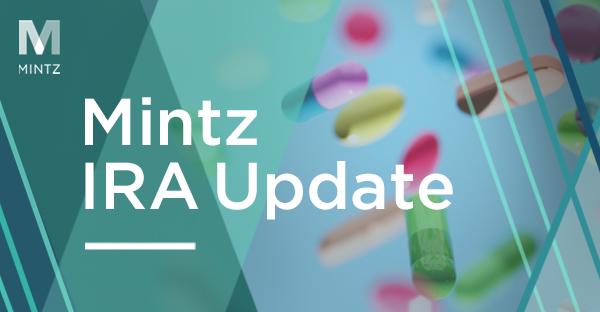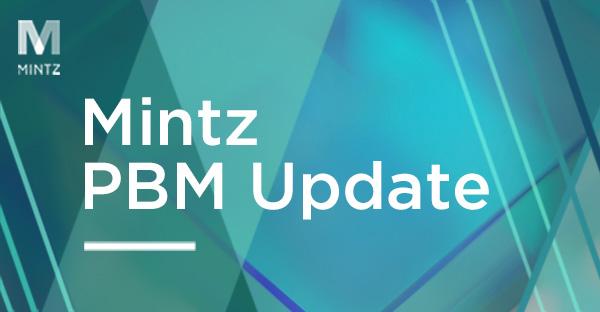
Hassan is a trusted advisor to health plans, pharmacy benefit managers (PBMs) and rebate aggregators, health care providers, and private equity firms navigating the complexities of today’s health care landscape. He brings deep industry insight and a pragmatic, business-minded approach to contract negotiations, regulatory compliance, and complex transactions.
With extensive experience counseling PBMs, health plans, and providers on operational, contracting, and compliance matters, Hassan helps clients structure agreements that align with evolving regulations while driving business success. He frequently advises on compliance with the anti-kickback statute, corporate practice of medicine restrictions, and other key regulatory frameworks, ensuring clients can confidently move forward in a rapidly changing environment.
Leveraging his background in private equity transactions—including acquisitions, restructurings, and growth investments—Hassan is particularly adept at guiding health care companies through complex deals, mitigating risks, and unlocking strategic opportunities.
Before joining Mintz, Hassan practiced at a top-tier international law firm in New York City and later at a boutique M&A firm in Los Angeles.
Hassan earned his J.D. from Duke Law School, where he was an editor of the Duke Journal of Constitutional Law and Public Policy. He also holds a B.S.Ed and MPH from Baylor University, with a concentration in health education.
viewpoints
Mintz IRA Update — Inaugural Edition
September 20, 2023 | Blog | By Theresa Carnegie, Tara E. Dwyer, Mitchell Clough, Xavier Hardy, Stephnie John, Bridgette Keller, Lauren Moldawer, Pat Ouellette, Hassan Shaikh
Mintz’s PBM & Pharmacy practice is proud to present the Mintz IRA Update, a regular publication that delves into the spectrum of developments under the Inflation Reduction Act of 2022 (“IRA”) impacting the health care industry.
PBM Regulatory Roundup (Fall 2022): State Medicaid Enforcement Efforts Continue As Legislative Activity Slows Down
November 14, 2022 | Blog | By Bridgette Keller, Hassan Shaikh
Though the flurry of state PBM-focused legislation slowed down with the summer recess, there has still been plenty of noteworthy PBM news. This roundup focuses on state Medicaid enforcement activities involving Centene and provides a brief overview of recent legislative activity.
MintzRx Newsletter — Your Prescription for the Pharmaceutical Supply Chain
October 3, 2022 | Article | By Theresa Carnegie, Tara E. Dwyer, Xavier Hardy, Stephnie John, Bridgette Keller, Lauren Moldawer, Pat Ouellette, Hassan Shaikh
MintzRx is a regular newsletter providing you with everything you need to know to stay abreast of the legal, regulatory, and industry developments across the pharmaceutical supply chain.
PBM Regulatory Roundup (Summer 2022): States Continue PBM Oversight Activities
August 2, 2022 | Blog | By Bridgette Keller, Hassan Shaikh, Derek Flynn, Shaina Sikka
2022 continues to see a surge in state-led PBM enforcement efforts. This roundup provides a brief summary of Louisiana’s complaint against United Healthcare and OptumRx related to its Medicaid program and recent state legislative actions.
PBMs Continue to Draw Federal Scrutiny: PBM Transparency Act of 2022
June 30, 2022 | Blog | By Bridgette Keller, Hassan Shaikh, Sergey Smirnov, Jewel Duberry-Douglas
As we noted in our last PBM Regulatory Roundup, there has been a wave of state regulation focused on PBM practices in the wake of Rutledge and Webhi. However, PBMs are also facing federal reform efforts. The Pharmacy Benefit Manager (PBM) Transparency Act of 2022 (the Act) was recently proposed in the U.S. Senate and intends to incentivize “fair and transparent” PBM practices, prohibit spread pricing and claw backs of payments to pharmacies, and empower the Federal Trade Commission (FTC) and state attorneys general in enforcement actions to stop “unfair and deceptive” PBM business practices.
At the same time, government watchdogs are also taking action: on June 7, 2022, the FTC announced that it would launch an inquiry into vertically integrated PBMs, and the Office of the Inspector General (OIG) for the Department of Health and Human Services expects to release a report in 2022 following completion of its analysis of Medicaid Managed Care Organization (MCO) PBM pricing.
PBM Regulatory Roundup (Spring 2022): The 8th Circuit Rules and More States Issue Regulations
March 29, 2022 | Blog | By Hassan Shaikh, Bridgette Keller
As states move forward with their 2022 legislative sessions in earnest, we have been examining whether the Wehbi decision has had any initial effects on PBM-focused legislation. This roundup provides a brief recap of the significance of Wehbi, summarizes the Eighth Circuit’s opinion and holding, and highlights some state measures that have been proposed or passed during the flurry of PBM-focused legislation we have already seen in 2022.
CMS Proposes Changes to Part D Regulations: Pharmacy Price Concessions
January 24, 2022 | Blog | By Hassan Shaikh
PBM Regulatory Landscape Roundup (Summer 2021): A Flurry of Regulations, Rutledge, and a Crucial 8th Circuit Decision
September 28, 2021 | Blog | By Hassan Shaikh, Bridgette Keller
Fourth Time’s the Charm? How COVID-19 May Spur Congress to Pass Legislation Expanding Coverage for Pharmacist Services
May 12, 2021 | Blog | By Hassan Shaikh, Theresa Carnegie
News & Press
Associate Hassan Shaikh recently authored an article published by the Daily Journal about State Pharmacy Benefit Management legislation following CA Governor Gavin Newsom’s veto of Senate Bill 966.
Michigan Latest To Have PBMs Get Licenses To Operate In State
December 1, 2023
Associate Hassan Shaikh spoke to Law360 in an article discussing Michigan’s new Pharmacy Benefit Manager (PBM) licensing requirements set to commence in 2024.
4 Pharma Industry Arguments Against CMS Drug Pricing Plan
September 29, 2023
Theresa Carnegie, Lauren Moldawer, and Hassan Shaikh co-authored an article published by Law360 on the Inflation Reduction Act's Medicare drug pricing negotiation program.
Ask A Mentor: How Can I Successfully Switch Practices?
November 9, 2021
podcasts
Health Law Diagnosed – New Year's Gratitude
February 3, 2025 | Podcast | By Bridgette Keller, Alison H. Peters, Samantha Kingsbury, Theresa Carnegie, Joanne Hawana , Abdie Santiago, Stephnie John, Pamela Polevoy, Karen Lovitch , Jean D. Mancheno, Deborah Daccord, Rachel A. Alexander, Jane Haviland, David Gilboa, Kathryn Edgerton, Hassan Shaikh, Madison Castle, Laurence Freedman, Priyanka Amirneni, Samantha Hawkins, Tara E. Dwyer, Rachel Yount, Sophia Temis, Xavier Hardy
Host Of Counsel Bridgette Keller invites the Mintz Health Law team to reflect on what they’re grateful for as they prepare for the year ahead. Hear from a dynamic group of Members, Of Counsel, and Associates as they share their perspectives on what’s coming up over the horizon.
Mintz Health Law: What We Are Grateful For
January 11, 2023 | Podcast | By Bridgette Keller
Bridgette Keller speaks with the Mintz Health Law team about what they are grateful for as they look back on a year of client service, mentorship, and working together as a team.
Health Law Diagnosed — Key Takeaways from the 6th Annual Pharmacy & Pharmaceutical Industry Summit
April 7, 2022 | Podcast | By Stephnie John, Bridgette Keller, Hassan Shaikh
Listen to our team discuss key takeaways from the weeklong summit and how industry trends are impacting business practices.
Publications
- Co-author, Assessing College Students' Use of Campus Recreation Facilities Through Individual and Environmental Factors, Recreational Sports Journal, (October 2018)
Involvement
- Member, American Bar Association
- Member, American Health Law Association
- Member, Health Care Compliance Association





